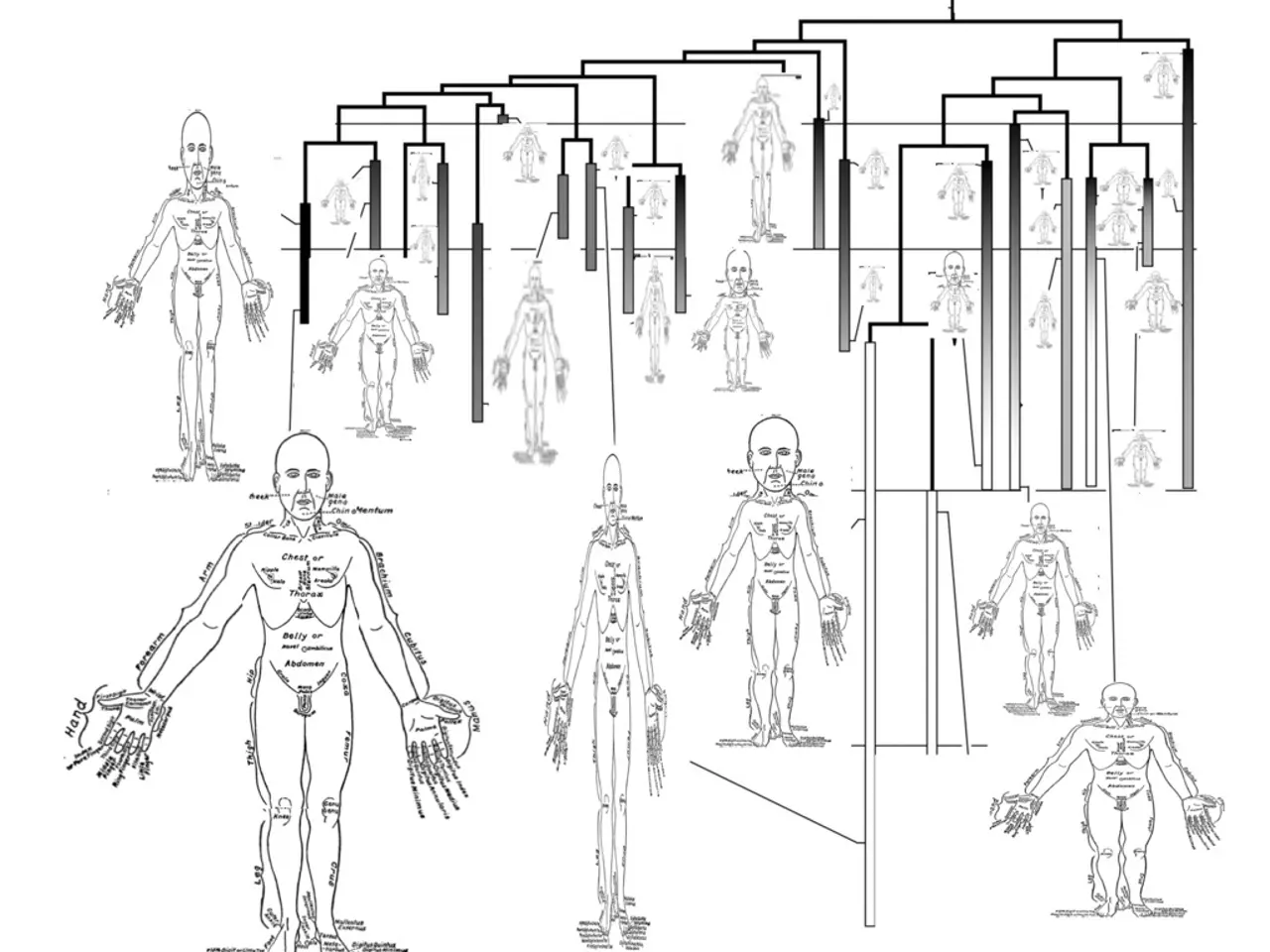Unraveling the Roots of Neurons: Exploring the Source of the Brain's Fundamental Components
In the vast expanse of life's evolution, the development of neurons has been a pivotal force, shaping the brains of various species and driving the rise of consciousness and intelligence.
Neurons, the basic building blocks of the nervous system, are believed to have originated from specialized secretory cells in early multicellular organisms. These cells, capable of secreting chemicals, responding to stimuli, and conducting impulses, evolved to become neuron-like cells, adopting elongated processes for rapid signal conduction and chemical transmission using neurotransmitters.
The need for efficient communication within increasingly complex multicellular bodies drove the evolution of nervous systems. Early animals, with their radially symmetrical bodies, had neurons arranged in a net-like pattern, allowing signals to spread widely and trigger coordinated responses. As animals evolved bilateral symmetry and active movement, unidirectional nerve impulses and centralized nervous structures like ganglia and brains became advantageous, minimizing the distance between sensory receptors and neurons for rapid response.
The correlation between neuronal complexity and cognitive capabilities is evident across species. Animals with more complex neural networks tend to exhibit higher levels of cognitive function. This is evident in the intricate neural circuits found in the brains of birds and the unique organizational scheme discovered in cephalopods, such as octopuses.
Neuronal plasticity, the biological basis for learning and memory, has been instrumental in this evolutionary journey. It enables the brain to encode new information by changing the strength of synaptic connections, growing new dendritic branches, and even forming new neurons through neurogenesis. This plasticity extends beyond the cellular level, influencing our thoughts, behaviours, and overall cognitive abilities.
The significance of neuronal plasticity is not limited to the individual level. It also has implications for the evolution of human culture and technology, as our ongoing evolution of the brain is inextricably linked to the plasticity of neurons. Neuronal plasticity has been a key factor in the evolutionary adaptability of species, providing a mechanism for individuals to adjust to environmental changes and challenges.
In conclusion, the origin of neuron-like cells is deeply rooted in the evolution of secretory communication cells, with nervous systems emerging to meet the demands of rapid, directed internal signaling in early multicellular animals adapting to more complex behaviours. The study of neurons and their plasticity continues to offer fascinating insights into the evolution of the nervous system and its current operation within individuals.
[1] Source [2] Source
- The development of neurons and the evolution of nervous systems can be traced back to specialized secretory cells, a process that exhibits the influence of technology in shaping life's evolution.
- As we delve into the past, it's fascinating to consider how these primitive neuron-like cells transformed the neural landscape of various species, boosting focus, learning, and memory capabilities.
- In the realms of medical-conditions, understanding the intricacies of neurons is paramount for devising tailored treatment strategies, ensuring the brain's optimal functioning under all circumstances.
- Today, we stand on the precipice of another evolutionary leap, with neurogenesis and innovation in education-and-self-development poised to reshape the contours of our minds.
- The unceasing growth of neural science paves the way for incredible discoveries, offering insights into not only the brain's inner workings but also the interplay between consciousness and environmental-science, including intriguing possibilities in space-and-astronomy.
- In this information-rich era, neurons have taken centre-stage, becoming the focal point of both basic research in organisms and applied studies in clinical-neurology and human-engineered artificial intelligence.
- As we ventured forth into the expansive frontiers of learning, it's clear that the exploration of neurons has sparked a revolution in our understanding of the brain and its potential to adapt and innovate for the better.




